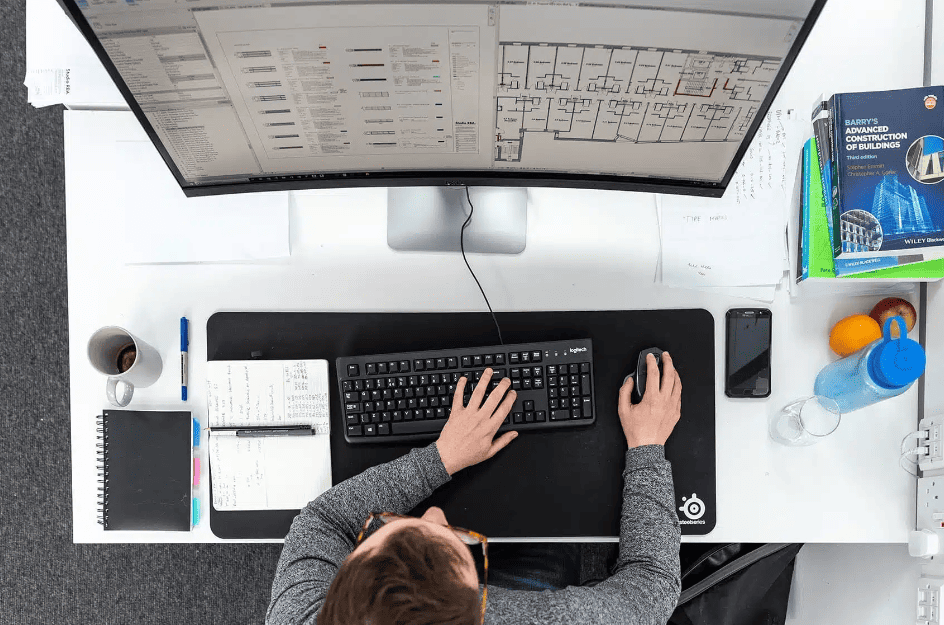Creative people can often get lost in their craft. Architects, architecture students and young designers are no exception. Overworked and overworked individuals often adopt outdated working methods that result in burnout and constant stress because of the notion of being productive. But there are simple and effective ways to develop healthy productive habits as designers and enjoy the work you do. In the architecture community, :scale is one of the leading platforms aiming to empower and support creatives from an early stage in their education and careers. In order to understand what healthy productivity looks like, it’s vital to learn the basics first.
Misconceptions about Productivity
Productivity is generally seen as doing more with less. But productivity is not about obsessing over efficiency and is not determined by the time available to complete a task. It can be very easy for the idea of productivity to turn sour when you are focusing too much on trying to be motivated, productive, creative and efficient at the same time. Instead, a healthy productivity approach is all about setting good habits for yourself.
In architecture, we often face tight deadlines, short turnarounds and a large workload. For architecture students, this can be a challenging situation, especially when balancing multiple modules and deadlines at any given time. This is where healthy productivity comes in. Habits such as time blocking, working according to your energy levels and ensuring you are prioritising your well-being will help you to stay calm in the face of pressure and unexpected issues.
Time Blocking
Time management is a massive part of completing tasks whilst maintaining a good quality and a decent life / work balance. You might have heard about treating university work as if it were a job and sticking to regular work hours. But this is a neurotypical and traditional way of thinking. The reality is, an average person is only productive for 3 hours a day. So how do we maximise this without feeling like the work never ends? It starts by understanding three key things you shouldn’t compromise on:
- Sleep. No matter how much work there is, without a good night’s sleep, you simply won’t be able to give your full attention to the task at hand. At the end of the day, no kind of work is worth losing sleep over.
- Being strict with your time. Your time is valuable. If you start to be strict with your calendar, you will learn to appreciate your own time more.
- Important life moments. When you’re a student, it can feel like university life often takes over. There are always deadlines or crits looming ahead. But missing out on important life moments shouldn’t be something you brush off.
Time blocking goes hand in hand with task management. There are several ways to approach this, but a popular one is through some kind of calendar or to-do list app. Todoist is a great example of this. It includes an Upcoming view where you are able to sort your tasks by day as well as additional features like priority and filters. When time blocking, try to aim for a maximum of 5 key tasks a day. Any more, and it’s likely you will begin to feel overwhelmed.
Your Energy Levels
Instead of chasing after the hours in a day, you should learn to manage your energy, not your time. This is a great method, articulated best by Khe Hy. Think about the ideal week you want to have. Aside from work-related tasks, what other activities do you want to focus on, or goals you want to achieve. For most designers, the creative process sparks positive energy, and this is just the way it should be.
When it comes to working according to your energy levels, start by carving out your day. This could be through a calendar as mentioned previously, or an energy map. Then, you need to think about the types of tasks you’re doing. Sorting these by priority, length of time you estimate it takes and how much energy it takes will give you a clearer understanding of ways to sort and filter through. This way, you’re optimising for the best-case situation and setting up healthy habits.
Well-being
Some people might overlook well-being as an essential part of productivity. But if you’re not healthy, both mentally and physically, how do you expect to have a good output? Sleep is the starting point, but ensuring that you have daily, weekly or monthly check-ins with yourself or with a trusted person can also help to alleviate the stresses and challenges that come with daily life.
Part of this is to take time out for yourself. Schedule this in the calendar if you need to. Self-care can take many forms, this depends person to person. Whether it’s a social media break, a vacation or spending quality time with others, these activities shouldn’t be left on the back burner being constantly postponed.
Productivity doesn’t need to be about numbers or time. Productivity should look the same as having fun with what you’re doing.
Sana Tabassum is a social entrepreneur and founder of :scale, an architecture blog and platform for students and young designers that aims to create an inclusive and collaborative archi-community which champions a balance between well-being and productivity.
She has documented her career in architecture as a young professional, whilst sharing her own learnings and building a digital identity.
You can find more advice and content on toscaleblog.co.uk, as well as following on Instagram.




